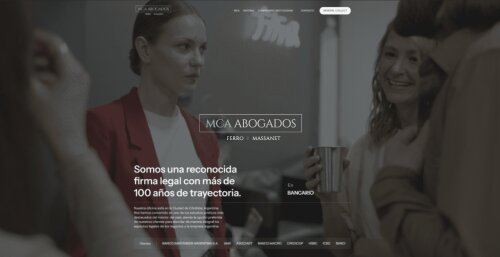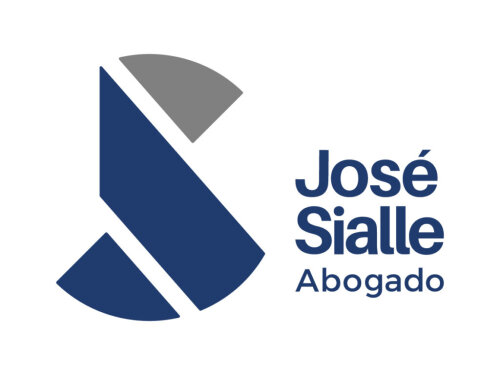Best Franchising Lawyers in Córdoba
Share your needs with us, get contacted by law firms.
Free. Takes 2 min.
List of the best lawyers in Córdoba, Argentina
About Franchising Law in Córdoba, Argentina
Franchising in Córdoba, Argentina operates primarily through contract law, intellectual property rules, consumer protection standards, tax regulations and employment law - most of which are set at the national level and apply in Córdoba. There is no special provincial franchise statute that creates a single unified franchise regime. Instead, franchises are formed and governed by franchise agreements between franchisors and franchisees, supported by trademark registrations, confidentiality and know-how protections, and by compliance with tax, municipal and provincial administrative requirements.
In practice, franchising in Córdoba follows the common model used across Argentina - a franchisor licenses a trademark, brand systems, and an operating method to an independent franchisee in exchange for fees and royalties. Successful franchise relationships depend on clear contracts, registered intellectual property, regulatory compliance and careful local adaptation to Córdoba's market and municipal rules.
Why You May Need a Lawyer
Franchising combines commercial, intellectual property, labor, tax and administrative law - areas where legal advice can prevent costly mistakes. You may need a lawyer if you are a prospective franchisor, a prospective franchisee, an existing franchisor expanding into Córdoba, a franchisee facing disputes, or a business converting to a franchise model. Common reasons to hire counsel include:
- Drafting and negotiating franchise agreements and related contracts - to define rights, obligations, fees, territory, duration, termination and transfer rules.
- Protecting and registering intellectual property - to register trademarks and protect trade secrets and know-how.
- Performing due diligence - to assess legal, financial and operational risks before entering a franchise relationship.
- Structuring the commercial relationship - to design royalty models, advertising funds, supply relationships and pricing policies that comply with Argentine competition and consumer rules.
- Complying with tax and administrative requirements - to determine national, provincial and municipal tax liabilities and obtain necessary permits and commercial habilitations.
- Resolving disputes - to handle breaches, claims of unfair competition, alleged labor misclassification, termination conflicts and enforcement of non-compete clauses.
Local Laws Overview
Important legal areas to understand when dealing with franchising in Córdoba include:
- Contract Law - Franchise relationships rely on comprehensive contracts. The national Civil and Commercial Code governs contract formation, interpretation, good faith duties and remedies for breach. Clear drafting of performance standards, reporting obligations and breach consequences is essential.
- Intellectual Property - Trademarks should be registered with the national intellectual property office. Licensing of trademarks and know-how must be documented. Protection of trade secrets and enforcement against third-party misuse are critical for brand value.
- Consumer Protection - National consumer protection rules apply to sales to the public. Franchisors and franchisees need to understand liability exposure for defective products or misleading advertising and ensure compliance with labeling and warranty rules.
- Competition and Antitrust - Competition law governs conduct that may affect market competition. Restraints that are unfair or abuse market power can attract scrutiny from competition authorities. Distribution and territorial clauses should be designed to avoid anti-competitive risks.
- Labor Law - Employment relationships in Argentina are tightly regulated. Franchisors must avoid exercising such control over franchisees that an employment relationship is deemed to exist between franchisor and franchisee employees. Proper structuring and documentation are needed to minimize risk of labor claims.
- Taxation - National taxes (income tax and value-added tax) together with provincial taxes (for example, gross receipts tax - Ingresos Brutos) and municipal levies can significantly affect franchise economics. Withholding obligations, VAT treatment of royalties and local tax registration are common concerns.
- Municipal and Provincial Regulations - Local habilitations, zoning approvals, signage permits and health or food permits in Córdoba municipalities are mandatory for many businesses. Requirements vary by municipality and business type, so local regulatory checks are necessary before opening.
- Dispute Resolution and Governing Law - Parties commonly choose Argentine courts or arbitration for dispute resolution. Arbitration is often preferred for commercial franchises for speed and enforceability. Choice of jurisdiction and enforcement mechanisms should be agreed in the contract.
Frequently Asked Questions
What is the first legal step to start a franchise in Córdoba?
The first legal step is to secure and register your intellectual property - principally trademarks - with the national intellectual property office. Simultaneously, prepare a franchise agreement and operational documentation including manuals, training plans and confidentiality agreements. Conduct regulatory checks for local permits and tax registrations required in Córdoba.
Does Argentina require a franchise disclosure document like in the United States?
No national mandatory franchise disclosure regime identical to the US Franchise Rule exists in Argentina. However, best practice is to prepare a thorough pre-contractual disclosure package that provides financial, legal and operational information. Many franchisors follow voluntary standards promoted by franchise associations to reduce risk and increase transparency.
How do I protect my brand and know-how in a franchise?
Register trademarks nationally, use written license agreements, implement confidentiality and non-disclosure agreements, and limit access to sensitive operational information on a need-to-know basis. Include clear clauses in the franchise agreement about permitted use, enforcement, and return of materials on termination.
Can a franchisor control daily operations of a franchisee without creating an employment relationship?
Controls necessary to protect brand standards are normal, but excessive operational control can create a risk that courts or labor authorities view franchisee staff as employees of the franchisor. Draft contracts to preserve the franchisee's commercial independence, and avoid direct management or payroll control over franchisee employees.
What taxes should I expect when operating a franchise in Córdoba?
Expect national taxes such as corporate income tax and VAT, provincial taxes like Ingresos Brutos, and municipal taxes and fees tied to commercial habilitation and signage. Royalties and service fees may have specific VAT or withholding implications. A tax advisor familiar with Córdoba and Argentina is essential.
Are territorial exclusivity clauses enforceable?
Territorial exclusivity can be included in franchise agreements, but enforceability depends on contract wording and competition law considerations. Exclusivity should be reasonable, clear and justified by commercial needs to avoid competition concerns or disputes with other franchisees.
What happens if I want to transfer or sell my franchise unit?
Franchise agreements typically require prior approval from the franchisor for transfers. The agreement should set conditions for assignment, including financial standards, buyer qualifications and indemnities. Comply with any procedural requirements in the contract and obtain necessary municipal or regulatory approvals for the new operator.
How are disputes between franchisor and franchisee usually resolved?
Disputes are commonly resolved through negotiation, mediation, arbitration or court litigation. Many franchise agreements specify arbitration - frequently seated in a major Argentine city - to ensure enforceability and confidentiality. Choose dispute resolution methods in the agreement that balance cost, speed and enforceability.
Do I need local permits to open a franchise in Córdoba city or other municipalities?
Yes. Commercial habilitation, health permits for food businesses, specific municipal licenses, building or zoning approvals and business signage permits are often required. Requirements differ by municipality in Córdoba province, so check the local municipal office where the unit will operate.
How can I evaluate whether a franchise opportunity in Córdoba is legitimate?
Perform legal and commercial due diligence: review the franchise agreement, intellectual property registrations, financial performance representations, supplier relationships and existing franchisee references. Verify that the franchisor complies with tax and registration obligations and consult local legal counsel to assess risks and contract fairness.
Additional Resources
Useful bodies and organizations to consult when dealing with franchising in Córdoba include national and local public agencies and industry groups. Consider contacting:
- The national intellectual property office for trademark registration and questions about IP protection.
- The federal tax authority for guidance on VAT and income tax obligations.
- The provincial Ministry of Industry, Commerce and related municipal commercial departments in Córdoba for local permits and habilitations.
- The national consumer protection authority for rules affecting sales to consumers.
- The national authority for competition and antitrust for questions about distribution and exclusivity practices.
- The provincial and municipal offices that manage health, zoning and business licenses specific to the business activity.
- Trade and business organizations such as the local Chamber of Commerce, the Córdoba Chamber of Commerce and industry-specific associations for market intelligence.
- Franchise industry organizations and networks, including the national franchise association and local franchise groups, which provide best practice guidelines, training and member directories.
- The Córdoba Bar Association or local law firms specialized in franchising, intellectual property, tax and labor law for legal representation and advice.
Next Steps
If you need legal assistance with franchising in Córdoba, follow these practical steps:
- Gather key documents - proposed or existing franchise agreement, trademark registrations or applications, business plan, financial projections, and any correspondence with franchisors or franchisees.
- Engage a local lawyer - choose counsel experienced in franchising, IP, tax and labor law in Argentina and with knowledge of Córdoba municipal requirements. Ask for examples of franchise transactions they have handled.
- Conduct due diligence - have your lawyer review contracts, registration status, potential liabilities, tax exposure and regulatory requirements specific to the municipality where you will operate.
- Negotiate contract terms - work with counsel to negotiate clear terms for territory, fees, reporting, quality standards, training, renewal, transfer and termination to protect your interests.
- Register and comply - ensure trademarks are registered, municipal habilitations and tax registrations are completed, and employment and operational practices conform to local rules.
- Plan for dispute management - include clear dispute resolution procedures in contracts and consider mediation or arbitration clauses to reduce litigation risk.
Remember that franchising is a complex mix of legal, commercial and operational issues. Early consultation with qualified local counsel reduces risk, helps structure a viable business model and improves the chance of a sustainable franchise in Córdoba, Argentina.
Lawzana helps you find the best lawyers and law firms in Córdoba through a curated and pre-screened list of qualified legal professionals. Our platform offers rankings and detailed profiles of attorneys and law firms, allowing you to compare based on practice areas, including Franchising, experience, and client feedback.
Each profile includes a description of the firm's areas of practice, client reviews, team members and partners, year of establishment, spoken languages, office locations, contact information, social media presence, and any published articles or resources. Most firms on our platform speak English and are experienced in both local and international legal matters.
Get a quote from top-rated law firms in Córdoba, Argentina — quickly, securely, and without unnecessary hassle.
Disclaimer:
The information provided on this page is for general informational purposes only and does not constitute legal advice. While we strive to ensure the accuracy and relevance of the content, legal information may change over time, and interpretations of the law can vary. You should always consult with a qualified legal professional for advice specific to your situation.
We disclaim all liability for actions taken or not taken based on the content of this page. If you believe any information is incorrect or outdated, please contact us, and we will review and update it where appropriate.













